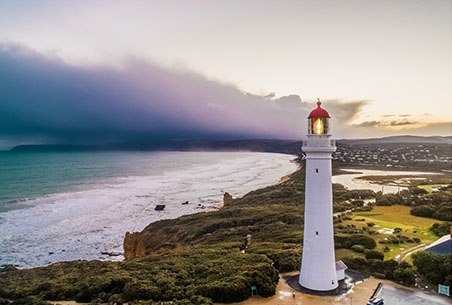



Election 2025
The federal election is on 3 May 2025. As the major political parties roll out their policies, we’ve summarised the latest announcements and election commitments relevant to individuals, and those in small to medium business.
We won’t cover ad-hoc comments and supposition - like most of the commentary on the financial advice and accounting industry generally, unless it’s a stated position.
1. Tax
Personal income tax cuts
25 March 2025: The Government has enacted a “modest” tax cut to all taxpayers from 1 July 2026 and again from 1 July 2027.
The tax rate for the $18,201-$45,000 tax bracket will reduce from its current rate of 16%, to 15% from 1 July 2026, then to 14% from 2027-28 at a cost of $648m over four years. The saving from the tax cut represents a maximum of $268 in the 2026-27 year and $536 from the 2027-28year.
A taxpayer with an annual income of $60,000 per year will receive a new tax cut of $268 in 2026-27 and $536 in 27-28. On top of the $1,179 they will continue to receive in the first round of tax cuts in 24-25.
A taxpayer with an annual income of $140,000 per year will receive a new tax cut of $268 in 2026-27 and $536 in 27-28. On top of the $3,729 they will continue to receive in the first round of tax cuts in 24-25.
Legislation enabling the tax cut passed Parliament on 26 March 2025.
In his Budget reply, Opposition Leader Peter Dutton has stated that he will repeal the new tax cuts labelling them "insulting".
Halving fuel excise
27 March 2025: In his Budget reply, Peter Dutton has promised that the Coalition Government will halve fuel excise for 12 months, enacted on the first day of Parliament. The policy is estimated to cost $6 billion.
Tax deductible entertainment for Small and medium-sized enterprises (SME’s)
18 Jan 2024: In a move designed to garner favour with small and medium businesses and support the struggling hospitality industry, Peter Dutton has promised a two year $20k per annum “business-related meal and entertainment expenses” tax deduction.
Generally, the cost of entertaining your clients – food, drink or other entertainment – is not tax deductible. The main exception to this is where entertainment is provided to employees, and this triggers a fringe benefits tax (FBT) liability for the employer.
If enacted, the entertainment boost will:
- Be available to SME's with an aggregated turnover under $10m
- Apply to "business-related meal and entertainment expenses" but EXCLUDES alcohol
- expenses under the measure will be exmpt from FBT
What’s the current definition of ‘entertainment’
There has been a lot of chatter about what is included as entertainment in the Coalition’s policy. Peter Dutton says that the initiative is not, “going to extend to playing golf and the rest of it – it’s not.”
The tax rules basically define ‘entertainment’ as being entertainment by way of food, drink or recreation plus travel and accommodation relating to the provision of entertainment. This means that things like golf games, movie or theatre tickets, and accommodation at resorts, can all fall within the definition of entertainment for tax purposes.
There are multiple interacting tax laws involved in entertainment. The way it normally works is that a business cannot claim a tax deduction or GST credits for expenses relating to entertainment unless a specific exception applies. As noted above, the main exception is where the entertainment is subject to FBT (i.e, where the entertainment is provided to an employee and a specific FBT exemption doesn’t apply).
It’s difficult to see how this policy initiative will come to fruition without a tight set of definitions around what entertainment is deductible.
Permanent $30k instant asset write off
16 May 2024: An increase to the $1,000 instant asset write-off threshold has been a consistent feature of Federal Budgets by various Governments as an incentive for small business to invest.
Peter Dutton promised to permanently increase the instant asset write-off to $30,000 in his Budget reply speech. It’s a promise that he has repeated consistently since the announcement.
The instant asset write-off has been in place since 1 July2011 where it applied to businesses with an aggregated turnover of less than $2million. The turnover threshold increased to $10 million from 1 July 2016. The threshold has only reduced back to the original $1,000 once in the last 13 financial years.
The extension of the increased instant asset write-off threshold of $20,000 to the 2024-25 financial was passed by Parliament on 26 March 2025
2. Superannuation
First home buyers accessing up to $50k in super
27 March 2025: In his Budget reply, Peter Dutton has stated that a Coalition Government will enable first home buyers to access up to $50,000 of their super for a home deposit.
3. Cost of Living
Energy rebate extended
23 March 2025: The Prime Minister extended energy rebates. From 1 July 2025, households and small business will be eligible for a further $150 rebate until the end of 2025. The rebates will automatically apply to electricity bills in quarterly instalments.
The extension of energy bill rebates will cost $1.8 billion over the forward estimates.
4. Energy
Green Aluminium Production Credit
20 Jan 2025: The Government has $2bn set aside for a new Green Aluminium Production Credit to support Australian aluminium smelters switching to renewable electricity before 2036 (there are four of them).
Under the initiative, smelters will be able to negotiate an emissions-linked credit contract payable per tonne of green aluminium produced for up to 10 years. The final credit rates will be based on individual facility circumstances and be dependent on reducing Scope 2 emissions. Scope 2 emissions are indirect greenhouse gas emissions associated with the purchase of electricity, steam, heat or cooling. They account for around 85% of emissions from aluminium smelting.
27 March 2025: In his Budget reply, Peter Dutton has stated that a Coalition Government will scrap the government's production tax credits for green hydrogen.
5. Small business
National small business strategy
3 Feb 2025: The Government have released their National small business strategy for consultation. The strategy primarily addresses how different government jurisdictions work with small business and how to relieve some of the friction when dealing across government systems and requirements. Less about small business and more about how to ensure government is not making it harder.
Related Insights
SBE Instant Asset Write-off
SBE Instant Asset Write-off
Australia extends $20,000 Instant Asset Write-Off to June 2026, giving small businesses certainty, cash-flow benefits, simplified depreciation, and investment incentives.
Tony Bedworth embraces a “Sea Change” while staying committed to clients
Tony Bedworth embraces a “Sea Change” while staying committed to clients
Tony Bedworth begins a four-day remote role from Airey’s Inlet, maintaining full client support and continuity at Murray Nankivell.
Cybersecurity Tips to help keep you and your information safe
Cybersecurity Tips to help keep you and your information safe
Protect your financial data with strong passwords, MFA, phishing awareness, updates, secure Wi-Fi, account monitoring, backups, and trusted cyber advice.
We are here for you
We look forward to working with you to help you achieve a better financial future. Let us guide you on the path to financial success.
Contact your preferred Murray Nankivell office today.









